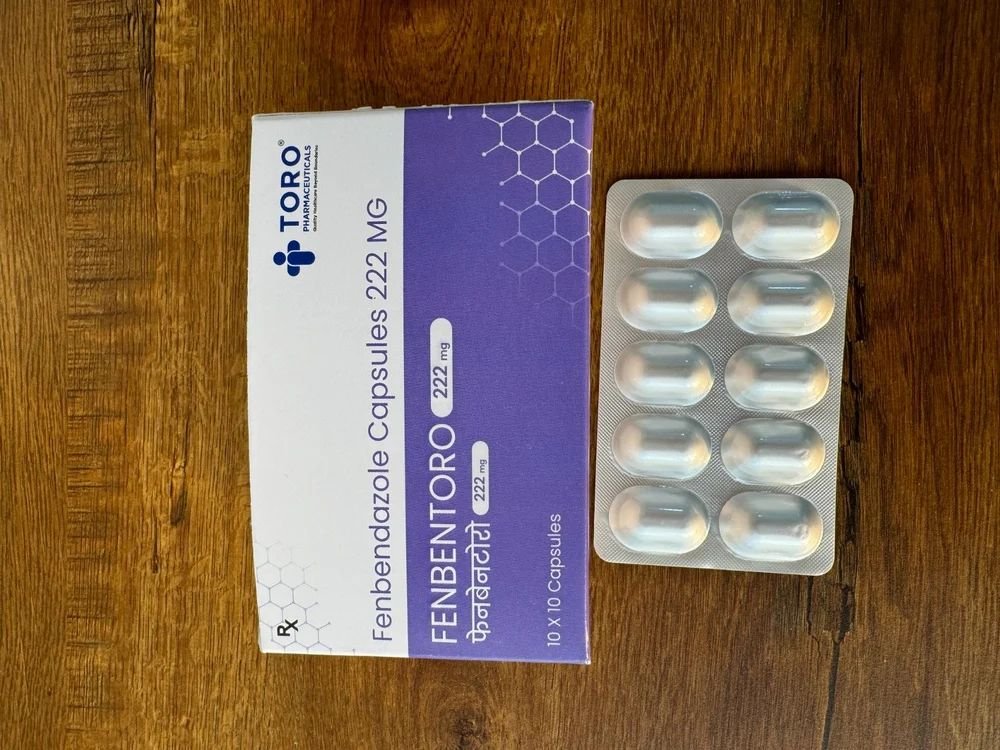The Complete Guide to fenbendazole for Parasite Control
Wiki Article
Recognizing the Advantages and Uses of Fenbendazole in Vet Medication
Fenbendazole has actually developed itself as a vital anthelmintic in veterinary medicine. Its ability to target different parasitic infections makes it a beneficial tool for veterinarians. The drug's device disrupts important cellular processes in parasites, leading to reliable therapy results. Its safety and security profile differs between species, necessitating cautious consideration in its usage (fenbendazole 444). Comprehending these dynamics can clarify fenbendazole's broader ramifications in vet care and ongoing study into its possible beyond typical applicationsSystem of Activity of Fenbendazole

Usual Parasitic Infections Dealt With With Fenbendazole
A variety of parasitical infections are efficiently treated with fenbendazole, making it a flexible alternative in veterinary medication. This anthelmintic representative is especially effective versus nematodes, consisting of roundworms and hookworms, which typically affect canines and felines. It is additionally utilized for the therapy of cestodes, such as tapeworms, giving a broad spectrum of action versus both types of digestive parasites. In addition, fenbendazole is advantageous in handling infections caused by protozoa, particularly Giardia, which can lead to gastrointestinal distress in animals. Its efficacy expands to dealing with specific lungworms in canines and felines, addressing respiratory health and wellness problems connected to these parasites. In general, fenbendazole's ability to target several parasitical varieties makes it an important tool in veterinary technique, making sure the health and wellness of pets influenced by these common infections.Safety and security and Efficiency in Various Animal Types
The safety and security and efficacy of fenbendazole differ among different animal species, emphasizing the relevance of species-specific factors to consider in vet medication. In dogs, fenbendazole is typically well-tolerated and effective against a variety of stomach bloodsuckers, consisting of roundworms and hookworms. For felines, nevertheless, its use is much less usual and might call for cautious application due to potential damaging responses.In animals, such as livestock and sheep, fenbendazole demonstrates effectiveness versus various endoparasites, adding to boosted health and efficiency. Nonetheless, the pharmacokinetics and prospective side results can differ considerably between species, necessitating cautious assessment by veterinarians.
Horses additionally react favorably to fenbendazole, specifically for treating strongyles and ascarids, though dose and administration routes must be tailored to their unique physiology. Consequently, understanding these differences is essential for optimizing treatment outcomes and making certain pet welfare across diverse types.
Management and Dosage Standards
Appropriate administration and dose guidelines are crucial for making best use of the therapeutic impacts of fenbendazole while decreasing potential negative effects. The dosage normally differs relying on the species being dealt with, the official statement specific problem, and the formula of fenbendazole used. fenbendazole. For pets and pet cats, a common dose is 50 mg/kg body weight, carried out daily for 3 successive days, however veterinarians may readjust this based on specific health assessmentsIt is essential to provide fenbendazole with food to enhance absorption and lessen stomach trouble. The drug is available in various types, including granules and paste, permitting versatile management choices. Checking the pet's feedback during and after therapy is a good idea to validate efficiency and security. Furthermore, vet guidance is essential to establish the proper duration of therapy based upon the sort of parasitical infection being attended to, guaranteeing excellent outcomes for the animal's health.
Future Viewpoints and Research on Fenbendazole
Research on fenbendazole continues to develop, concentrating on its prospective applications past standard antiparasitic usages. Current researches have actually explored its efficiency in treating numerous types of cancer, specifically in veterinary oncology. Preliminary information suggest that fenbendazole might prevent the growth of growth cells and enhance the results of other chemotherapeutic agents.Moreover, scientists are examining its role in taking care of intestinal problems in animals, highlighting its anti-inflammatory properties. The flexibility of fenbendazole for different species questions about its safety accounts and excellent application routines in varied populations.
As rate of interest expands, there is a need for extensive clinical tests to establish evidence-based find out here guidelines for these unique applications. Future research might also examine the mechanisms behind fenbendazole's results, potentially paving the means for cutting-edge healing techniques in veterinary medication. The recurring expedition of fenbendazole could substantially enhance treatment choices for various vet problems.

Frequently Asked Concerns
Is Fenbendazole Safe for Pregnant Animals?
The safety and security of fenbendazole for expecting navigate to this site pets remains unpredictable. While some research studies suggest very little risk, veterinarians generally recommend caution and frequently discourage its usage while pregnant unless the benefits clearly surpass potential risks.Can Fenbendazole Be Used in Animals?
Fenbendazole is generally used in animals to deal with different parasitical infections. 222 mg. Its efficiency versus intestinal worms makes it an important anthelmintic, adding to boosted health and performance in animals increased for food and fiberWhat Are the Negative Effects of Fenbendazole?

The adverse effects of fenbendazole may include gastrointestinal disturbances, sleepiness, and sensitive reactions. In unusual situations, extra extreme responses can happen, requiring cautious monitoring and assessment with a veterinarian throughout therapy.
Exactly How Does Fenbendazole Contrast to Various Other Dewormers?
Fenbendazole uses broad-spectrum effectiveness versus various parasites, frequently comparing positively to various other dewormers. Its one-of-a-kind mechanism targets different life phases, making it efficient, while typically providing a positive safety profile compared to choices readily available on the marketplace.Can Fenbendazole Be Utilized for Dealing With Cancer in Pet Dogs?
The possibility of fenbendazole in dealing with cancer cells in family pets has garnered interest. Preliminary research studies recommend it might prevent cancer cell development, yet additionally research is necessary to validate its efficiency and security in veterinary oncology.Report this wiki page